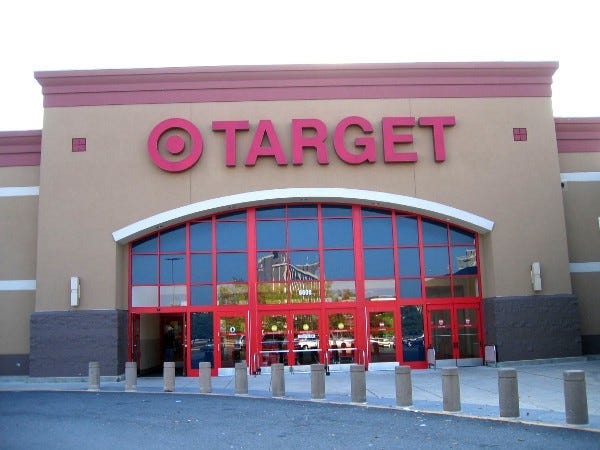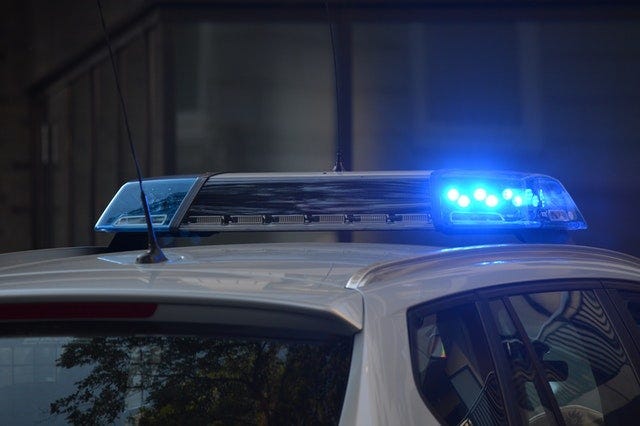Store closings: Complex reaction to protesting versus looting
Protesters force retail America to speak up on social justice issues

On May 31, Target made the decision to close six of its retail stores. Less than a week later, that number of closed stores (or shortened hours) increased to 200 Target stores.
“We’re providing community support and prioritizing the rebuilding of our Lake Street store, which is near where George Floyd was killed,” Target reps stated in an official press release. “We have teams working to provide basic first aid supplies, water and essentials through partnerships with local nonprofits. We appreciate members of the community and our team who have assisted in cleaning in and around that location. We are now boarding the store up until we can survey the location and begin recovery efforts.”
The Minneapolis, Minnesota store was destroyed due to looting. In addition to the murder of George Floyd by former Officer Derek Chauvin (and with assistance from three other officers who are now in jail named Thomas Lane, J. Alexander Kueng and Tou Thao), local protesters already had an additional gripe with this particular St. Paul location. According to AdWeek, the Midway Target store on University Avenue was targeted due to a “hiring discrimination lawsuit and a history of funding and supporting local police.”

Additionally, in Minneapolis, a Wendy’s, AutoZone and Dollar General were lit on fire. Cub Foods, Dollar Tree and CVS were drowning in looters and destroyed.
Although there have been far more peaceful protests than looting in all 50 states, there is no denying that the looting has hit essential businesses in a major way.
Nationwide non-essential businesses that had been shut down for months, with out-of-work employees, were forced to close their doors again and sometimes board up. Other U.S. store chains, and small businesses, that had not been initially targeted, such as Food 4 Less in Evanston, Illinois, lined its entrance with carts and closed earlier this week. (They have since re-opened.) While businesses are hurting, people are hurting more. And the protests are proving this.
ADVERTISEMENT ~ Amazon
As an Amazon affiliate, I earn a percentage from purchases with my referral links. I know some consumers are choosing to boycott Amazon for its DEI removal. However, after thinking about this thoroughly, I want to continue promoting cool products from small businesses, women-owned businesses and (specifically) Black-owned businesses who still feature their items on Amazon. As of the first date of Black History Month 2025, each new post will ALWAYS include a MINIMUM of one product sold by a Black-owned business. (I have visited the seller’s official site to verify that Amazon Black-owned logo.) I am (slowly) doing this with older, popular posts too. If you still choose to boycott, I 100% respect that decision.

Playing devil’s advocate regarding retail riots
There are three sets of opinions regarding the protests fighting for equality and against police brutality. One group believes that looters are tearing up their own communities, including black businesses, and are too violent to be reasonable with. (This group has been dragged all over social media, including reality TV star Shekinah and ’90s-hit rapper Trina.)
The second group believes that there are far more peaceful protests and a few “bad apples” in the bunch — interestingly the way bad police officers are identified — and they should have the First Amendment right to speak up. Although they are not getting nearly as much news coverage, you won’t see much out of them besides chanting rhymes, holding signs, with hands up or kneeling, signing petitions and standing with like-minded people in a crowd. Then here come overly aggressive authority figures, with Trump’s permission, to use horses, projectiles and gas to force them out at a moment’s notice.
Recommended Read: “When self-checkout feels more like racial profiling ~ Whether working or shopping, everyone black is not a thief”
I will never loot — but I understand
Then there’s a third group, one whose opinions are a bit more complex. They identify with both sides, and they are me.



